After leaving their hometowns, families, and friends, many full-time travel bloggers begin to feel lonely and isolated.
Lauren Juliff quit her part-time job at a supermarket in the UK in 2011 to pursue her dream of traveling the world and becoming a digital nomad.
The term digital nomad first became widely known in 1997 when authors Makimoto and Manners wrote a book about how life would change thanks to the internet. Today, the term refers to people who are constantly on the move, have no fixed residence, and earn money by working online. Full-time travel bloggers are among digital nomads.
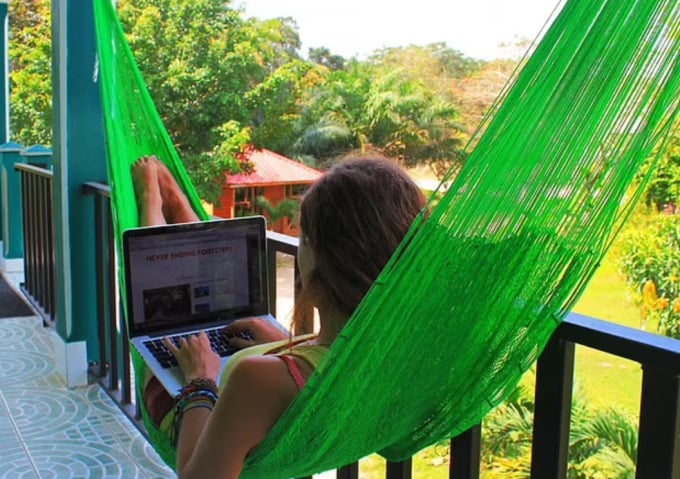
Lauren Juliff works while traveling in Belize. Photo: Instagram
Juliff’s initial direction was successful. She started a travel blog and made money from recounting her adventurous experiences. Exploring new lands made the British female traveler feel life was so alive and learn many things every day. During one trip, Lauren met her boyfriend, also a digital nomad, and began to explore the world together. In 5 years, the two visited 75 countries, some places they stayed for a few months but some destinations they left very quickly.
But after five years, Lauren began to suffer from severe and recurring mental health crises. Despite changing her diet and practicing meditation, Lauren realized that the only way to stop the mental crises was to "think about home", where her parents and friends were.
Whenever Lauren had a crisis, she immediately thought of "finding a home" and her anxiety quickly dissipated. The traveler suspected that her emotional instability came from the lack of stability that comes with moving so often. Every few weeks, she moved to a new country, met new people, changed her daily diet, and had to get used to a new language. The constant change made Lauren falter.

Lauren on a trip to Cambodia. Photo: Instagram
Moving into different homes also forced Lauren to get used to different types of kitchen appliances. She often had to eat out, and Lauren's body became weaker.
After her mental transformation, Lauren decided to move to Lisbon, Portugal to settle down. She noticed a significant improvement in her mental and physical health.
Living in one place has given Lauren time to make friends, learn to cook, and develop hobbies that aren’t related to travel. Working in one place has also allowed Lauren to spend more time on her work, which has tripled her income.
The trend of becoming a digital nomad has exploded in recent years around the world. In 2023, more than 17 million Americans described themselves as digital nomads, double the number in 2019.
Beverly Thompson, a sociologist at Siena College in New York, writes that digital nomads often struggle to interact with the opposite sex (who don’t work in the same industry). Digital nomads often don’t know the culture or language of the countries they visit, so they have to seek out people like themselves to make friends. Beverly says her family and friends are often “shocked and confused” when they learn of her lifestyle choices.
Lauren also admits to having limited relationships. She has friends all over the world and often sees them when they are in the same city. But after a few years, she realized how “shallow” most of these relationships were.
Most of the digital nomads Lauren has met and known have retired after 5 years because they want to settle down and build long-term and sustainable relationships. Lauren reveals that these dark sides are rarely known because digital nomads rarely share them publicly.
Lauren is speaking out to warn others about the life and dark side of being a full-time travel blogger in the hope that people will avoid the same mental crisis she did.
“Partly because your followers love your travel lifestyle. When I announced that I was ending my full-time travel lifestyle, a lot of them were upset,” Lauren says.
Lauren currently lives in Melbourne, Australia with her husband but still likes to travel three months a year.
Anh Minh (According to MSN, Instagram, DM )
Source link








![[Photo] General Secretary To Lam attends the 80th anniversary of Vietnam's diplomacy](https://vstatic.vietnam.vn/vietnam/resource/IMAGE/2025/8/25/3dc715efdbf74937b6fe8072bac5cb30)
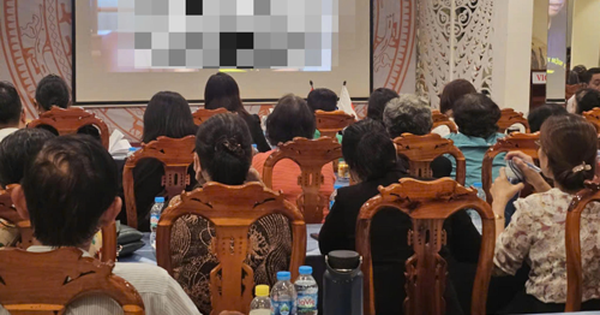









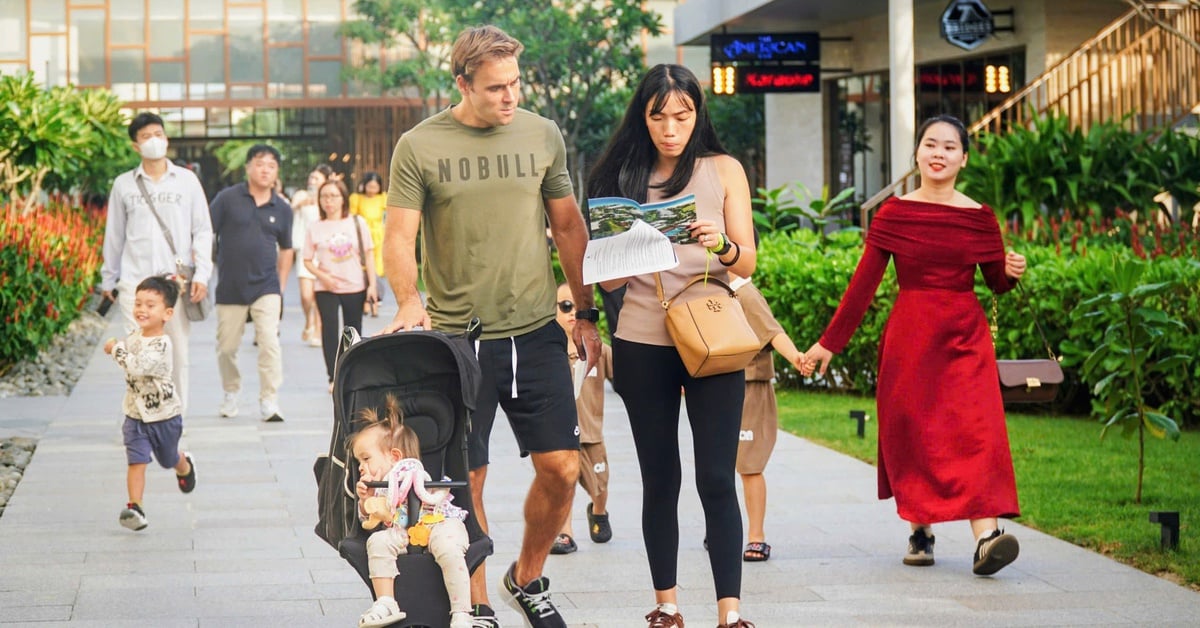

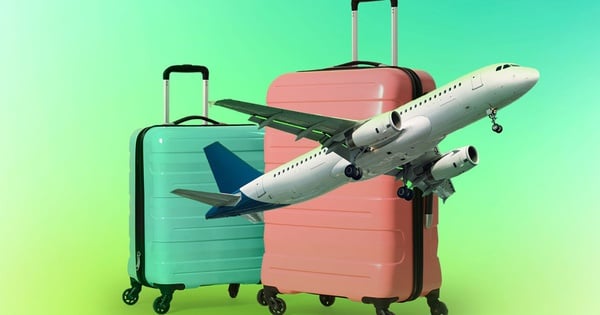































































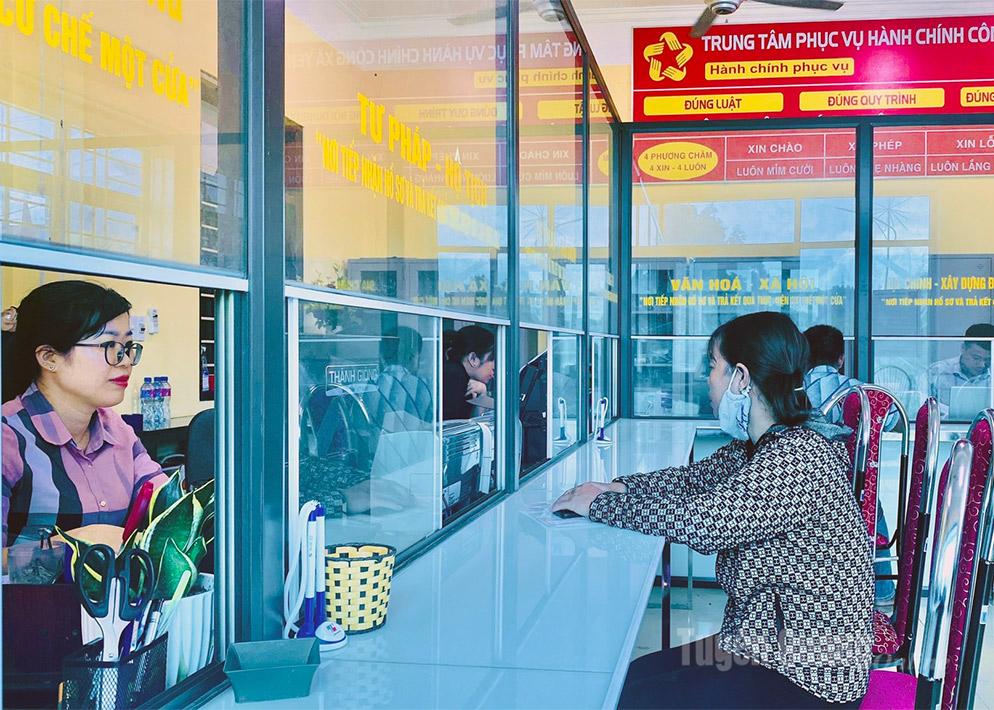
























Comment (0)